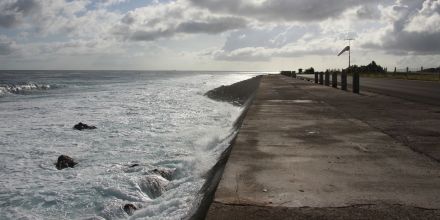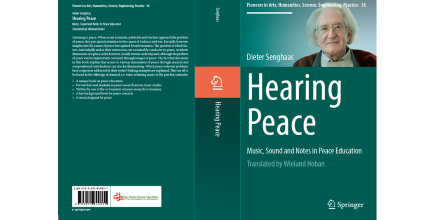New report on Prosocial Tech Design Governance
Jun 2025 - News
A new report by Toda Senior Research Fellow Dr Lisa Schirch lays out actionable recommendations for governments, civil society, researchers, and industry to design digital platforms that reduce harm and increase benefit to society. The Blueprint on Prosocial Tech Design Governance responds to the crisis in the scale and impact of digital platform harms. Digital platforms are fueling a systemic crisis by amplifying misinformation, harming mental health, eroding privacy, promoting polarization, exploiting children, and concentrating unaccountable power through manipulative design. Prosocial tech design governance is a framework for regulating digital platforms based on how their design choices— such as algorithms and interfaces—impact society. It shifts focus “upstream” to address the root causes of digital harms and the structural incentives influencing platform design. This commissioned report was published by the Council on Technology and Social Cohesion, and the University of Notre Dame, in association with Toda Peace Institute. Download the report here.
These Pacific Islands are building walls to stop rising seas. Will it work?
Jun 2025 - News
New seawalls also protect low-lying atolls in Tuvalu, and more will appear in Kiribati, Tonga, Solomon Islands, Fiji and other island nations, many with funding from the Australian government and international development organisations. They're a source of hope for countries grappling with sea level rise - which scientists say will continue even if the world limits global temperature rises to 1.5C above pre-industrial times. For the full story, go to RNZ News. Image: DFAT/wikicommons
Vanuatu communities growing climate resilience
Apr 2025 - News
Communities in Vanuatu are learning to grow climate resilient crops, 18 months after Cyclone Lola devastated the country. Save the Children Vanuatu country director Polly Banks said they have been working alongside Vanuatu's Ministry of Agriculture and local partners, supporting families through the Tropical Cyclone Lola Recovery Programme. She said the programme looked at the impact of the cyclone on backyard gardening and on people's economic reliance on what they grow in their gardens, and developed a recovery plan to respond. For the full story, go to RNZ International / Pacific. Image: Neil Rawlins/shutterstock.com
Moon Chung-in on US foreign policy under Trump: Interview with The Korea Times
Apr 2025 - News
In this interview with The Korea Times, Moon Chung-in, the James Laney Distinguished Professor at Yonsei University discusses U.S. President Donald Trump’s foreign policy, its impacts on South Korea and East Asia, and the pivotal role of China in the new international order. The interview was held on the occasion of the publication of Prof. Moon’s new book, titled “Why Has U.S. Diplomacy Failed?” The full interview can be accessed here. Image: Maria Ajmal/shutterstock.com
Hearing Peace: Music, Sound and Notes in Peace Education
Feb 2025 - News
Hearing Peace: Music, Sound and Notes in Peace Education by Dieter Senghass is a new book due to be released by Springer in April 2025. When social scientists, publicists and teachers approach the problem of peace, they pay special attention to the causes of violence and war. Recently, however, insights into the causes of peace have gained broad resonance. The question is which factors, individually and in their interaction, are sustainably conducive to peace. Aesthetic dimensions of a peace order, however, usually remain underexposed, although the problem of peace can be impressively conveyed through images of peace. The fact that the essays in this book explain that access to various dimensions of peace through musical and compositional contributions can also be illuminating: Which peace-relevant problems have composers addressed in their works? Striking examples are explained. They are all to be found in the offerings of classical, i.e. value-retaining music of the past five centuries. Dieter Senghaas, professor emeritus of international relations, University of Bremen, was one of most innovative contemporary German social scientists, with major contributions on peace and development research and on music and peace. He was awarded many prizes: the International Peace Research Award (1987), Göttingen Peace Prize (1999), Culture and Peace Prize of the Villa Ichon in Bremen (2006), and the Leopold-Kohr Prize of the Austrian Ministry of Science and Research (2010). This book is published as part of Springer's Pioneers in Arts, Humanities, Science, Engineering, Practice series.




